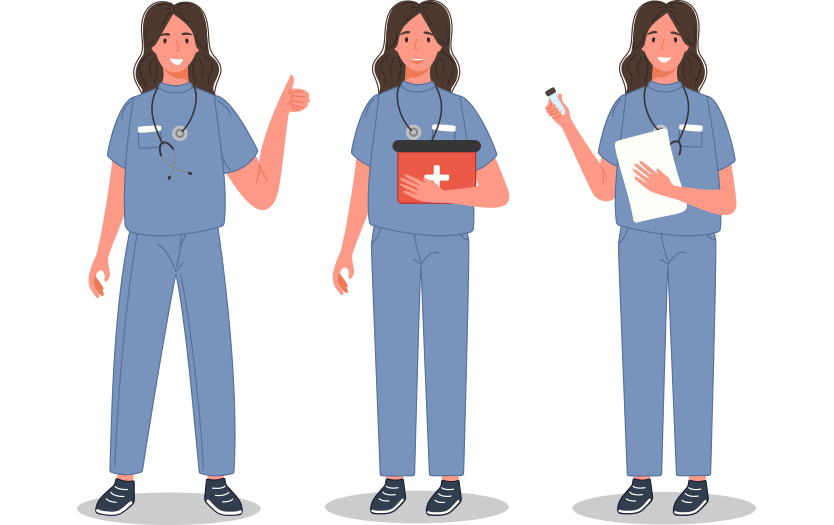In the professional world, networking is key to discovering valuable career opportunities. People may not know it, but even without trying, they’re networking every day. Be it a small conversation with someone on the way to work, at a clinic, or with friends – we are all indulged in professional networking.
Professional networking is the art of interacting and building sustainable relationships with other professionals related directly or remotely to your field. It helps you foster relationships with those who might be mutually beneficial to your career.
You may consider networking an act of building relationships to help achieve various goals. But it is important to remember that networking is not just about meeting people and knowing them. The real potential of networking lies in systematically categorizing every contact into categories. You should know who will benefit you as a connector, mentor, peer, or expert.
Types of Professional Networking
Primarily, there are three categories of professional networking: operational, personal, and strategic.
Operational networking is to build relationships with your peers within the organization. Those with who you choose to interact might be related to you in their skills, interests, or mindset. You may observe them within a meeting and then engage in a conversation over lunch. According to NurseJournal, nurses can communicate with their colleagues for knowledge and insight to improve their practice.
Personal Networking
Personal networking is more concentrated on developing personal contacts outside the organization. The approach might be intimidating for those who aren’t comfortable initiating a conversation with others. Nonetheless, there are other ways to begin with, personal networking. The easiest way is to join a web-based networking platform such as HealthcareTalentLink. It allows you to connect to individuals outside your existing circle. Nurses can leverage personal networking by asking for job referrals from a friend from school or some volunteer work.


Professional Networking
Another way to approach personal networking is to join professional organizations and attend an event that the latter conducts. On such occasions, you can ask someone you know to introduce you to someone you don’t. From there onwards, you can begin your journey of conversing with people who can help you move ahead in your career.
Strategic Networking
In the end, strategic networking is a type of professional networking happening at higher organizational levels. It prioritizes future endeavors through internal and external contacts. Strategic networking can help nurses find an individual in an executive position who can mentor them in their careers.

Professional Networking For Nurses – A Tactical Move!
Like every other profession, networking can do wonders for healthcare professionals, especially nurses. While it might not be a part of standard professional nursing goals, networking can help nurses in numerous ways. From potential job referrals and leads to knowledge gathering – professional networking for nurses renders quite a few benefits.
Professional networking for nurses does not discriminate according to seniority. Hence, whether you’re a novice in the nursing realm or a seasoned nurse, you can utilize the benefits to achieve your professional nursing goals.
The Benefits of Professional Networking for Nurses
According to the Nursing World, through networking, nurses can interact and engage with like-minded people who share the same struggles and ambitions as they do. Such in-person conversation can help add value to the nursing profession and the nurses’ careers. Nursing World quotes the words of Angie Charlet, who regards networking as a means to experience significant career advancement. Charlet is an MHA, BSN, and RN at Illinois Critical Access Hospital Network and thinks networking can help nurses gain insight into how their profession’s changing.
The advantages of professional networking for nurses are diverse and multifold, as they help in:

Your Pursuit of Achieving Professional Nursing Goals Made Easy
Being a nurse is not easy. It’s draining and tiring, yet rewarding at the same time. Through professional networking, nurses can find an easier way out through the relevant experiences of their fraternity team members. It is one reason that motivated us to create HealthCareTalentLink (HCTL), a professional platform that links the healthcare community. Through HCTL, we endeavor to empower healthcare professionals to find better opportunities for tomorrow.





